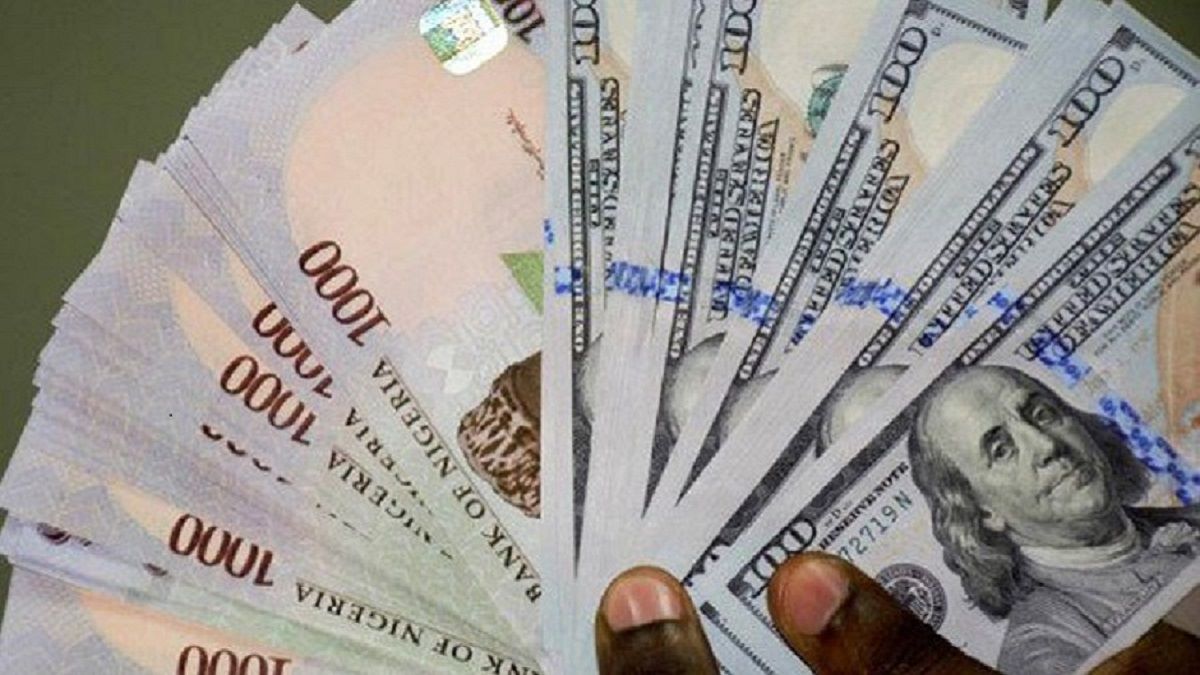
Persistent demand pressure, tighter liquidity and speculative activity fuel depreciation across FX markets…
The naira closed the week on a weaker note in the official foreign exchange market, settling at N1,444/$1 on Friday, according to data published on the Central Bank of Nigeria’s (CBN) website.
The currency struggled to find stability throughout the week, reflecting sustained pressure in the FX market even as Nigeria’s external reserves continued their gradual uptick.
How the Naira Traded During the Week
The naira opened Monday at N1,437.50/$1, before slipping to N1,440.89/$1 on Tuesday.
By midweek, the currency fell further to N1,444.85/$1, then posted a slight rebound at N1,441/$1 on Thursday.
However, Friday’s close at N1,444/$1 confirmed a renewed weakening trend.
On a week-on-week basis, the currency declined from N1,438.5/$1 recorded the previous Friday, extending volatility in the official window.
CBN figures from the preceding week show lower levels of instability trading at N1,438/$1 on Monday, N1,441.75/$1 on Tuesday, N1,440/$1 on Wednesday and N1,437.5/$1 on Thursday highlighting increased pressure in the latest trading cycle.
Reserves Rise as Naira Weakens
Despite the naira’s struggles, Nigeria’s foreign reserves climbed to $43.5 billion, up from $43.32 billion a week earlier.
The increase is attributed to improved oil receipts, stronger non-oil inflows, and stricter FX management measures by the CBN.
Analysts say rising reserves typically signal the CBN’s strengthened capacity to intervene, yet the ongoing depreciation underscores persistent market imbalances, particularly inadequate FX supply and sustained demand pressure.
They caution that without substantial inflows, either through boosted exports or renewed foreign investment, the naira could remain under pressure in the coming weeks.
Parallel Market Mirrors Official Weakness
The naira also weakened in the black market, trading between N1,455/$1 and N1,463/$1 during the week.
While the CBN’s managed-float system has reduced extreme market swings observed earlier in the year, broader economic headwinds such as declining global oil prices appear to be weighing on sentiment.
The weakening in both official and parallel markets reflects a cautious outlook among traders and investors.
BDC Operators Struggling as Dollar Allocation Remains Suspended
Many Bureau De Change (BDC) operators say their businesses are on the brink of collapse due to the prolonged suspension of dollar sales to BDCs by the CBN.
Most operators report steep difficulty accessing FX from the formal window, leaving them unable to meet overhead costs or compete effectively in the market.
According to recent complaints, the lack of official funding has squeezed liquidity in the retail FX market, exacerbating volatility for end-users and small importers.



